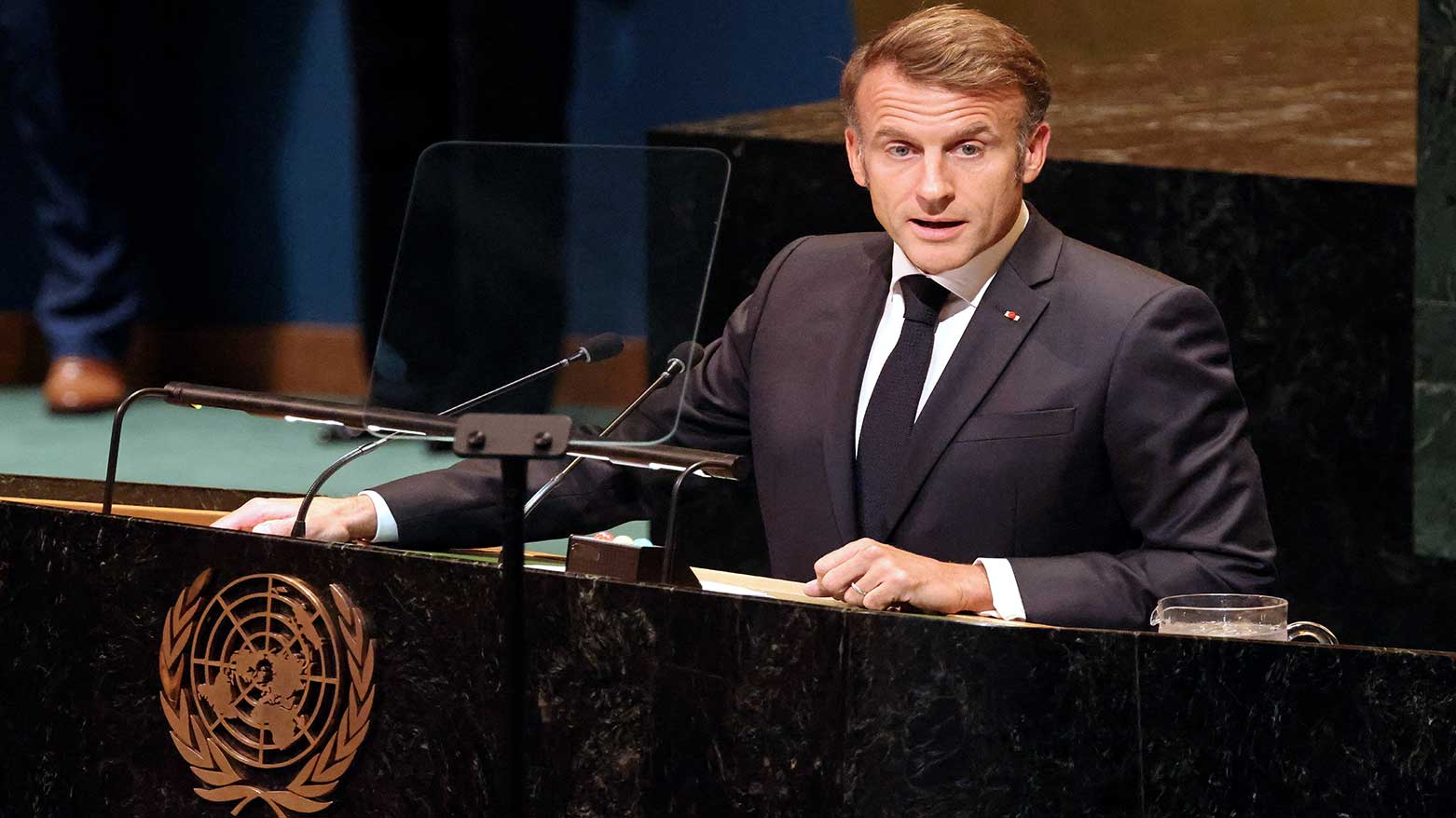West Bank Residents Express Skepticism as France Recognizes Palestinian State
Many Palestinians doubt France’s recognition of their state will bring meaningful change, as Israel vows to expand settlements and Western powers push renewed support for a two-state solution.

ERBIL (Kurdistan24) — France’s recognition of a Palestinian state has been hailed as a historic moment on the international stage, but on the ground in the West Bank, many Palestinians greeted the move with indifference, saying it would do little to ease their daily struggles.
French President Emmanuel Macron announced the recognition during a speech at the United Nations, framing it as a step toward reviving prospects for peace and reinforcing international law. The Palestinian Authority (PA) welcomed the decision as “historic and courageous,” calling it consistent with UN resolutions and the two-state solution.
I declare that today, France recognizes the State of Palestine. pic.twitter.com/8kg6xukuO0
— Emmanuel Macron (@EmmanuelMacron) September 22, 2025
Yet in Ramallah, the de facto capital of the PA, the announcement stirred muted reactions. “Of course, recognition is a good thing, but even if the whole world recognizes it, Palestine's situation will not improve,” 18-year-old Zain Abdel Wahab told AFP.
“The war in Gaza has lasted two years. What will this recognition bring us? Will the war end? No, it will continue.”
Others echoed his skepticism. “The West is making a big deal out of it, but it does not make any difference for Palestinians,” Rasha, a 37-year-old resident, told AFP, noting that daily life remains shaped by checkpoints, settler violence, and economic decline.
A divided response
While some Palestinians dismissed the recognition as symbolic, others cautiously welcomed it. Ibrahim Salam Abdullah, 18, said: “We are happy with this recognition, but we want additional steps… to end the war in our beloved Gaza Strip, and the famine that is afflicting the children and all of our people in Gaza.”
In downtown Ramallah, a small group of men clapped during Macron’s remarks, praising his emphasis on equality between Israelis and Palestinians.
“You don't go to the moon in one day,” Abu Elias, 63, talked to AFP, reflecting cautious optimism. “Nothing has been happening for 80 years, and now I have a feeling something good for Palestinians will happen.”
Still, for many, the implications remain unclear. “I don’t understand what this recognition entails,” said Bisan, a 25-year-old architecture student. “We don’t see the reality of it. However, I think it's important for my parents. It makes them feel that somebody cares.”
Israeli rejection
Israel reacted swiftly and defiantly. Prime Minister Benjamin Netanyahu dismissed France’s move as meaningless and vowed to accelerate settlement expansion in the West Bank, insisting no Palestinian state would be allowed to emerge.
Israeli officials argue that such unilateral recognitions undermine direct negotiations and reward what they describe as Palestinian refusal to compromise.
The recognition also comes as Israel continues its military campaign in Gaza, aimed at dismantling Hamas after years of rocket attacks and cross-border assaults. Israeli officials argue the offensive is necessary for national security, though it has left much of the enclave heavily damaged and humanitarian conditions strained.
In the West Bank, Israel maintains that increased settlement activity and security operations are vital to counter escalating violence and attacks against its citizens, even as tensions with Palestinians deepen.
Symbolic Support, Little Change on the Ground
France’s step follows similar moves by Britain, Canada, and Australia, reflecting growing momentum among Western states to formally acknowledge Palestinian statehood amid frustration over the lack of progress in peace talks.
More than 140 countries worldwide have already recognized Palestine, though the United States and most major European powers have yet to do so.
The United States has resisted calls to unilaterally recognize a Palestinian state. Washington maintains that Palestinian statehood should only emerge through direct negotiations with Israel, not international declarations.
Diplomats say the recognition is largely symbolic, but it signals mounting pressure on Israel and its allies to reinvigorate discussions about a two-state solution, long seen as the cornerstone of a lasting peace.
For Palestinians, however, symbolism offers little solace in the absence of concrete changes to their political and humanitarian situation.
As one resident put it: “It may be a victory in words, but here on the ground, our lives remain the same.”